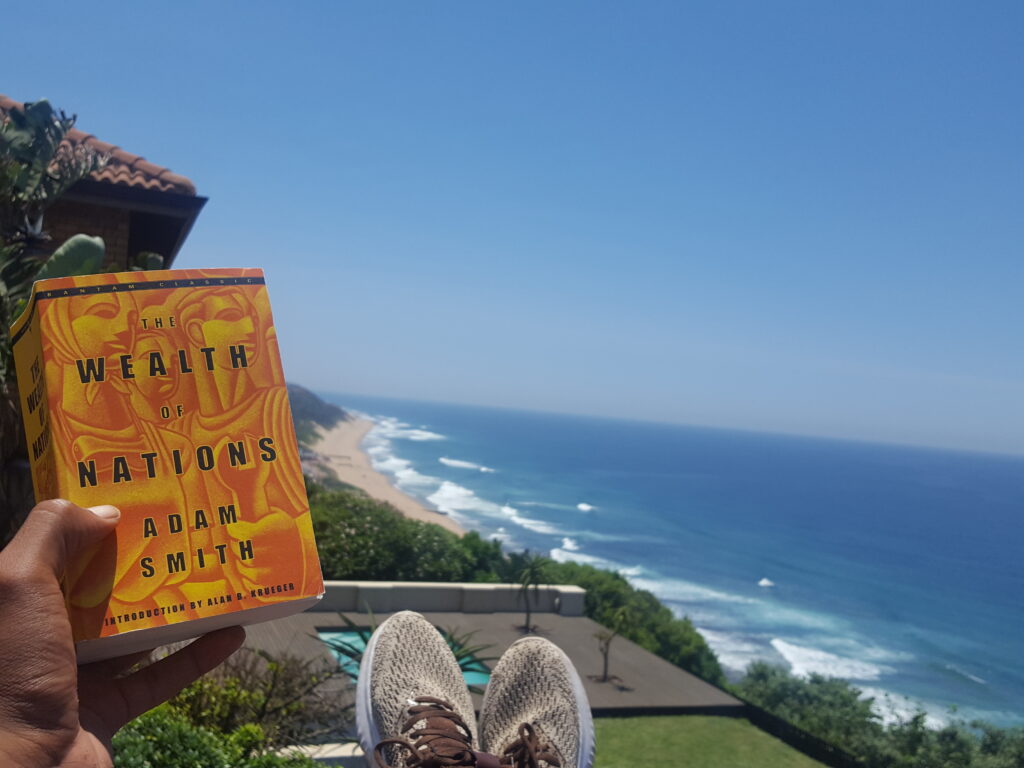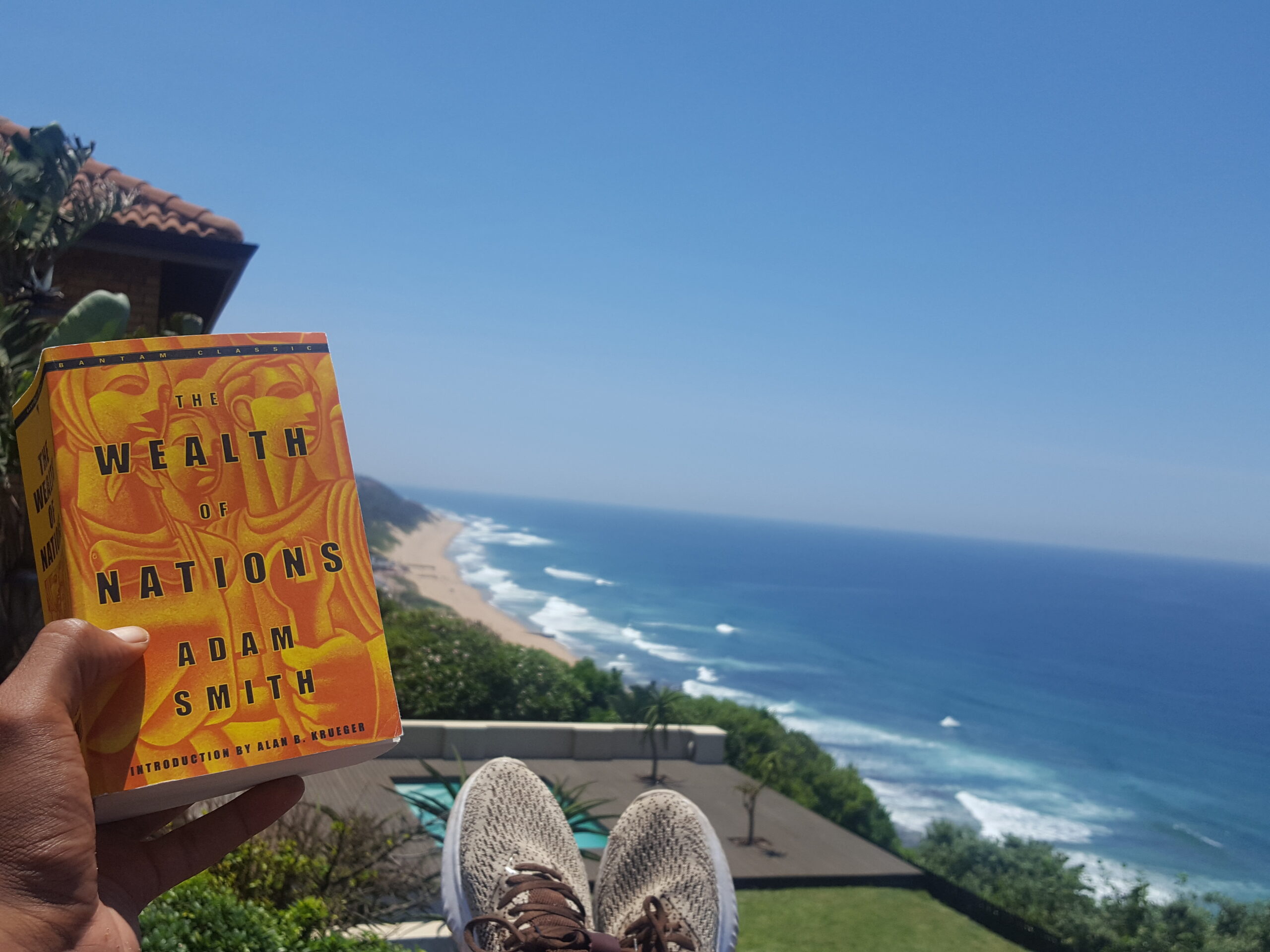
Exploring the Genius of Adam Smith: My Journey Through The Wealth of Nations
Growing up in the South Durban Basin in South Africa, I experienced poverty firsthand. Money wasn’t just scarce; it was a constant source of stress and limitation. It wasn’t until I started making my own money in high school that I began to understand its true value. This early exposure to the harsh realities of life sparked a curiosity in me that eventually led to a deep interest in economics, finance, and investments. One of the most transformative books I’ve ever read on this journey is Adam Smith’s The Wealth of Nations.
The Context Behind The Wealth of Nations
Before diving into the book’s content, it’s essential to understand who Adam Smith was and the era in which he wrote. Born in 1723 in Scotland, Smith was a moral philosopher who turned his keen eye toward the economic transformations of his time. His observations during the early stages of the Industrial Revolution culminated in The Wealth of Nations in 1776. This work laid the groundwork for modern economics and introduced concepts that still underpin capitalist economies today.
The Joy of Understanding Capitalism
For someone who grew up with so little, discovering the inner workings of capitalism was like uncovering a secret that only a few knew. The Wealth of Nations provided a window into the mechanics of wealth creation and distribution. Smith’s philosophy was clear: individual self-interest, when channeled through free markets, could lead to collective prosperity. This was a revelation to me. The idea that pursuing one’s own goals could inadvertently benefit society as a whole was both fascinating and empowering.
The Division of Labor
One of the first principles that resonated with me was the division of labor. Smith explains how breaking down tasks into smaller, specialized jobs increases efficiency and productivity. This concept isn’t just an abstract economic theory; it’s something I witnessed firsthand. As I started to earn and manage my own money, I saw how specializing in certain skills could make me more valuable and productive. It was a lesson in how focused effort, when applied correctly, can yield substantial rewards.
The Invisible Hand of Capitalism
Smith’s idea of the “invisible hand” was another concept that struck a chord with me. He argues that when individuals pursue their own self-interest, they unintentionally contribute to the economic well-being of society. This idea was transformative for me, especially as I started interacting with people who had business acumen. I realized that these individuals weren’t just out for themselves; their success often created opportunities for others. The invisible hand was at work, guiding the market and, in turn, benefiting everyone involved.
Capitalism: A Force for Good
Reading The Wealth of Nations solidified my belief that capitalism, despite its flaws, is a force for good. Smith makes a compelling case that free markets create wealth, drive innovation, and improve living standards. As someone who has always desired to control my own destiny, this resonated deeply with me. Capitalism offers a path to freedom—freedom to create, to innovate, and to build something that can last. It’s a system that rewards hard work and ingenuity, and for someone like me, it represented a way to escape the limitations of my upbringing.
The Pencil Theory: A Lesson in Globalization
One of the most striking ideas that stem from Smith’s work is the pencil theory, which perfectly illustrates the complexity of modern economies. The idea that something as simple as a pencil requires a global network of resources, industries, and trade to produce is mind-boggling. It’s a powerful reminder of how interconnected our world is and how markets and trade bring people together in ways that are often invisible. This theory reinforced my belief in the importance of learning and understanding the forces that shape our world.
Markets, Supply, and Demand
Smith’s insights into markets and the dynamics of supply and demand were particularly enlightening. He describes how markets self-regulate through these forces, ensuring that resources are allocated where they’re most needed. This concept was more than just an economic principle to me; it was a lesson in life. Understanding these dynamics allowed me to see the importance of knowledge in personal finance. If you can’t understand money, you’ll never have it—or at least, you’ll never have enough of it. Grasping these principles is essential for anyone who wants to take control of their financial future.
The Personal Impact of Smith’s Ideas
Reading The Wealth of Nations wasn’t just an intellectual exercise for me; it was a turning point. Growing up poor, I often felt trapped by circumstances beyond my control. But as I began to understand the principles of economics, I realized that I had the power to change my situation. This book, along with others I read during that time, gave me the tools to think critically, to question the status quo, and to pursue a path that would ultimately lead to independence and success.
My journey wasn’t easy. Embracing these ideas put me at odds with many of my close relatives and the people I grew up with. I chose to estrange myself from those who didn’t share my vision because I believed that the pursuit of knowledge and personal growth was not just right for me, but for the greater good of society. I’ve always had an ambition to own my own business, to control my own destiny, and to be beholden to no one. The Wealth of Nations reinforced that ambition and gave me the intellectual foundation and courage to pursue it.
Conclusion
In books like The Wealth of Nations, I found not just knowledge, but a blueprint for life. Adam Smith’s insights into the division of labor, the invisible hand, and the power of markets have shaped my understanding of the world and my place in it. No one philosophy is perfect or absolute, but if you start down this road, you’ll be amazed at what you can accomplish.
For anyone looking to understand the economic forces that shape our world or seeking the tools to control their own destiny, I can’t recommend this book enough. It’s not just a historical text; it’s a guide to understanding the principles that can lead to personal and collective prosperity. In the pages of The Wealth of Nations, you might just find the key to unlocking your own potential.
